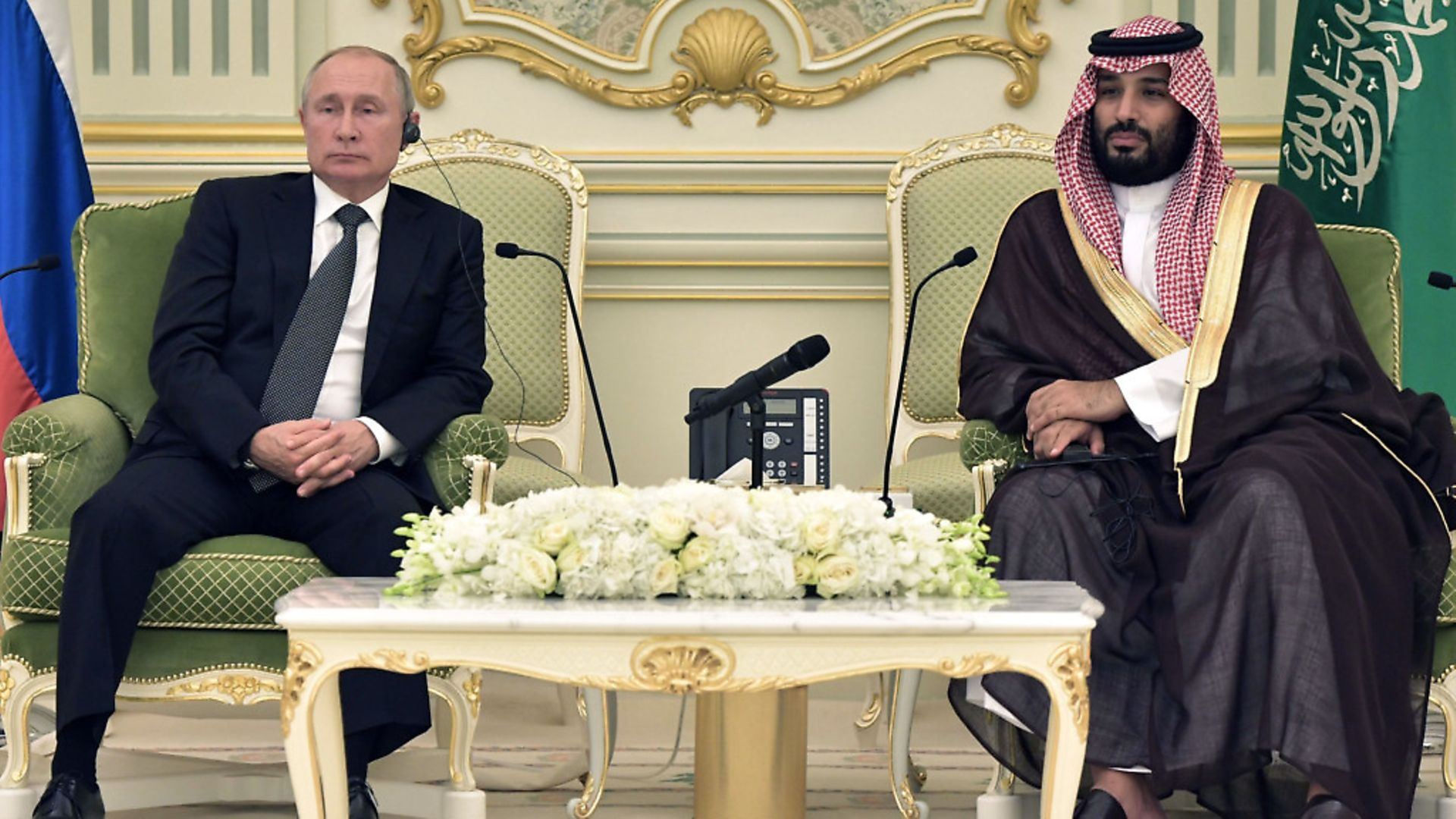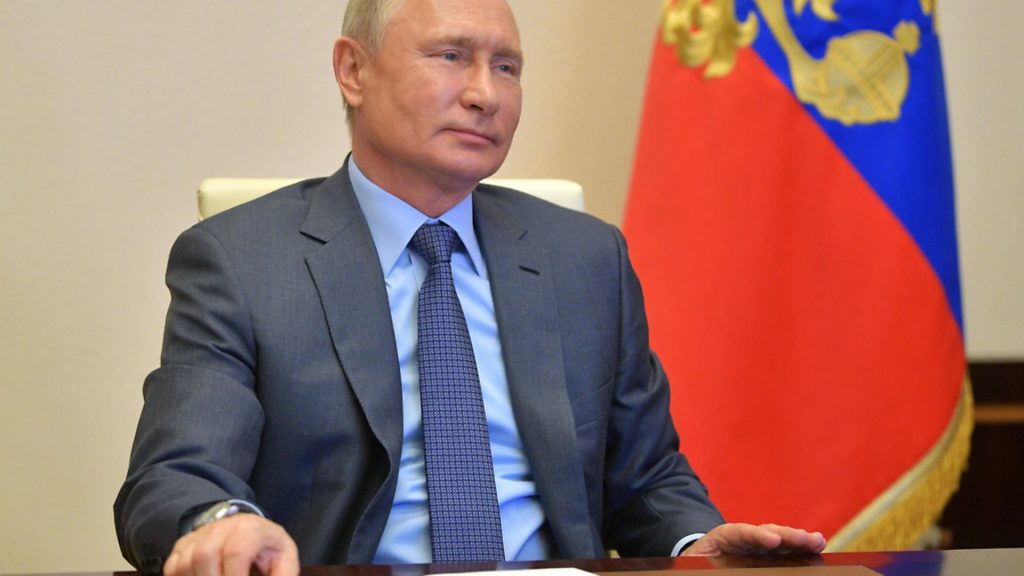
ANDREW ADONIS explores why the drop in oil price will benefit the world by reducing Russia and Saudi Arabia’s economic grip.

Time for much-needed cheer: oil at $0 a barrel. It means less of the rulers in Riyadh and Moscow. And with the right policies it need not mean any let-up in the growth of renewable energy to address climate change.
The spot price for the delivery of oil in May collapsed at the start of the week. In much of the west it fell to at or below $0 a barrel. Oil producers are paying people to take the stuff off their hands because there is no demand and they have run out of storage.
This reflects the collapse of industrial production and normal life. When the economy revives, so will demand for oil. But it may be a good while before prices return to pre-Covid-19 levels, if at all, particularly since the Saudi-Russian oil war had already sent prices plummeting pre-virus and there is no more than a temporary truce between crown prince Mohammed bin Salman and president Vladimir Putin.
The Putin-Salman oil war is a classic case of two scorpions in a bottle. For a decade Putin has been invading Saudi ‘space’ both in his own backyard, building a big new oil pipeline to China and the Pacific coast which opened last year, and also in the Middle East itself by supporting long-standing enemies of the Saudis, notably Iran and the Assad regime in Syria.

Russia is the world’s second largest oil exporter after the Saudis. Only a few years ago it was sending barely any oil to Asia with its oil exports mostly flowing west. With his new pipeline, Putin aims to ship more than 1.5 million barrels a day to China and the Pacific.
However, Salman refuses to accept the shrinking of Saudi oil revenues. His regime cannot survive without the ‘oil ransom’ it has maintained over much of the world since the 1970s.
He also needs it to fund his grandiose ‘Saudi Vision 2030’, including his modernistic city on the Red Sea, Neom, which he calls as ‘the world’s most ambitious project’. Or folly.
A long-term decline in the oil price will weaken both these men. The risk of instability in Russia and Saudi Arabia is far outweighed by the global benefit of two regimes being less able to undermine the democracy and prosperity of the west. Just possibly it might also open the way to a better future for the peoples they repress at home and in their regions.
The Trumpian dimension is harder to calculate. US oil producers are ravaged by the combination of cheap domestic shale gas, Covid-19 and the Putin-Salman tension. Yet while some US states rely heavily on oil exports for jobs, far more Americans will benefit from cheaper pump prices. Petrol has already halved in price over the last year across parts of the US.
Possibly this will help Trump in his re-election, although he has a lot of Covid-19 responsibility to survive first.
As for Britain, a net oil importer, the average household spent £21.20 a week on petrol before the lockdown so UK consumers also stand to gain.
The downside would be if cheaper oil took the pressure off the greening of the globe. But there is no reason for this to happen. The cost of renewable energy, particularly wind and solar, is falling dramatically as technology improves.
UK offshore wind prices have dropped by more than half in the last five years alone. Northern Europe is not short of sea and southern Europe is not short of sun.
Governments can and should levy higher fuel duties if the oil price remains low. That means more money for the NHS and schools and less for Salman and Putin.
A new equilibrium of more renewables alongside cheaper oil and less global dictatorship thus looks possible. It would be a boon for the world’s democracies, who have taken the lead in tackling climate change in the face of resistance from the world’s three most dangerous regimes – Xi, Putin and Salman.
So I spy sunlit uplands. Once we escape from the Vale of the Shadow of Coronavirus, that is.









